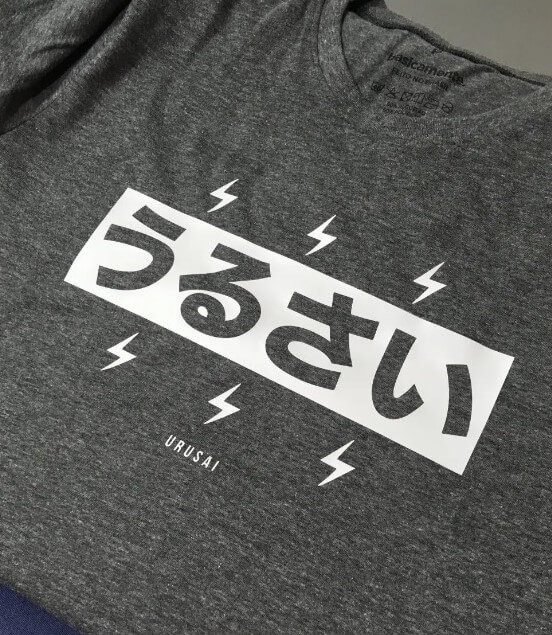Want to learn how to say Shut up in Japanese? Check out our article below where we’ve listed and explained some of the ideal Japanese phrases to tell someone how to wrap it up!
We’ve all had to be in a situation where we’re annoyed at someone who speaks too much or wouldn’t take a moment to be silent.
Just to be polite and well-mannered we pay heed to what they say even though we badly want to tell them to shut up. Since the phrase “Shut up” is considered too rude, most of us prefer not to say it out loud.
- Related: How to say Happy Birthday In Japanese
- Related: How To Say I Love You In Japanese
The Japanese are soft-spoken and don’t prefer loud noise hence they use certain words and phrases to tell someone to keep quiet or to keep it low. If you’re here to learn how to say Shut up in Japanese then make sure to read further below.
How To Say Shut Up In Japanese
Do The Japanese People Say Shut Up?
It’s understandable to doubt if the Japanese people actually express their annoyance to someone or something loud by saying shut up.
This is because the Japanese people are renowned to be very polite, thoughtful, and well-mannered hence they don’t like to be seen as rude and condescending.
Yet at the same time, the Japanese people are also known to be soft-spoken and don’t converse much unnecessarily or out of their turn. Due to their ingrained habit of being quiet most of the time, the Japanese people are intolerant of people who are noisy and talkative.
Hence there are instances when even the most patient Japanese person can literally ask someone to shut up if they’ve been annoyed for too long.
However, there are degrees of the most formal and informal ways to say shut up in Japanese and some of these Japanese phrases are even flexible that can be used in different contexts and circumstances as well.
Furthermore, keep in mind that some phrases can be too extreme which the Japanese people consider vulgar or filthy.
Therefore, it’s best to refrain from using such phrases even if they can quieten someone because the Japanese people definitely dislike such harsh and offensive phrases and expressions.
Different Ways To Say Shut Up In Japanese
As we mentioned above, there are different words and phrases that can mean Shut up in Japanese, some more formal than others. Let’s take a look at these words and phrases below.
Urusai (うるさい) - Shut Up
Urusai is one of the common ways to say shut up in the Japanese language and it’s written in kanji characters asうるさい. Urusai is a flexible Japanese word that can either be used in serious or playful contexts.
This means that Urusai can be mostly used on casual and informal occasions and it doesn’t carry a harsh meaning or tone when said.

You can use Urusai when you’re with your close friends, relatives, or colleagues if you think they’re being too loud.
For eg - When you’re doing an important task and some of the people who’re close to you happen to annoy you, you can tell them “Urusai yo” (るさいよ) which can either mean “shut up” or “leave me alone”.
Damatte Kudusai (黙ってください) - Please Shut Up
Damatte Kudusai is another popular Japanese phrase that most of us are aware of, and it’s one of the phrases frequently used by non-Japanese speakers as well. The English translation of Damatte Kudusai is “Please Shut Up”.
Since “Please” is a magic word that’s mostly used to sound polite, “Damatte Kudusai” is a formal way of asking someone to quieten up.
For instance, if you see a random person who’s too quiet in public places you can tell them “Damatte Kudasai” in a soft tone to not sound too aggressive.
You can even tell your noisy neighbors who are generally loud most of the time to Damatte Kudusai too. Damatte Kudasai is a phrase that can even be jokingly used between friends and close family members as well.
Damare (だまれ) - Shut Up / Shut The Hell Up
Damare is one other Japanese word to say Shut up and it’s written in kanji characters as だまれ. Damare is one of the extreme ways in Japanese to say someone to shut up and it’s considered informal and rude.
When translating Damare to the English language it can literally mean “Shut the hell up” and it’s only used by someone when they’ve reached their extreme point in anger.

In addition, the word Damare is most likely used by someone to express their anger or scorn at a person rather than the situation that causes the anger itself.
For example, you see a person you dislike and he/she screams at top of their voice which can cause you to say “Damare” or maybe you’re sleeping and the construction workers are being too noisy and then you tend to use the word Damare.
Damare is a word that must only be used when you’re extremely fed up with the situation. Since it’s a strong word, using it regularly can bring you trouble.
Shizuka ni Shite (静かにして) - Be Quiet
Shizuka ni Shite is a Japanese word that can be used as a substitute for telling someone to be quiet. This Japanese phrase is written in kanji letters 静かにして and it’s one of the formal ways to say shut up in Japanese. When translating Shizuka ni Shite to the English language it means “Be Quiet”.
Since Shizuka ni Shite is just a formal way to say someone to be quiet and it doesn’t necessarily carry the connotation of shut up like Damare and Urusai. It’s an ideal Japanese phrase to use in public places where there are strangers who can be noisy.
Shizuka ni shite is pronounced as “Shizuka ni shte” and the letter “I” isn’t pronounced since it’s silent. If you want to sound more polite while saying “Shizuka ni shite” you can say “Shizuka ni shite kudasai” which means “Keep quiet, please”.
- Related: Meaning Mono and Koto in Japanese
Anata wa urusaidesu (あなたはうるさいです) - You Are Loud
You don’t have to necessarily say “Shut Up” to tell someone to keep quiet, in fact, there are several nice ways to tell someone to keep quiet.
One more polite way to say shut up in Japanese is by saying “Anata wa urusaidesu” which is basically a sentence and it’s written in kanji characters as あなたはうるさいです. And when Anata wa urusaidesu is translated to English it means “You are loud”.

Since Anata wa urusaidesu means “You are loud” it’s a formal way to ask someone to be quiet by telling them they’re being noisy.
In addition, the phrase Anata wa urusaidesu uses the word “Urusai” as a root word and as we mentioned above Urusai can either be used in formal or informal contexts.
Shizuka ni (静かに) - Be Silent
Shizuka ni which is written in kanji letters 静かに and when translated to the English language it means “Be Silent”.
From the meaning of the phrase, we can comprehend that “Shizuka ni” is just another alternative way to tell someone to shut up formally in Japanese. This is a phrase generally used by teachers at school when they want the kids to settle down.
Shizuka ni is predominantly used in formal contexts hence it can be used in public places, with strangers, and basically with anyone you may or may not know personally but only if they’re being loud.
However, it’s ideal to use Shizuka ni at a place where people are too crowded and loud such as at an event, meeting, festivals, etc.
When And When Not To Say Shut Up In Japanese?
Let’s admit it, Shut up is definitely a phrase that shouldn’t be used regularly due to the offensive tone it carries yet we still can’t help ourselves but use it to express how loud or annoying someone can be.
However, the Japanese aren’t known for being outright expressive especially when they have to correct someone because they’re thoughtful people and wouldn’t want to hurt others' feelings.
Yet there are circumstances where they have to use shut up to lower someone’s noise, therefore let’s look at instances when and when not to say shut up in Japanese.
- With Strangers - It’s acceptable to use shut up with strangers, however, with strangers you must ensure to be respectful and calm when doing so. The ideal Japanese words and phrases you can use to mean shut up are Damatte Kudusai, Shizuka ni Shite, Shizuka ni, and, Anata wa urusaidesu.
- With Close Friends - Since your close friends are those who understand you, you can use any of the Japanese words and phrases that mean shut up we’ve mentioned above. Generally, words and phrases like Damatte Kudusai, Damare, and Urusai are the ones frequently used among close friends.
- With Relatives - It’s a big no to use offensive Japanese phrases like Urusai, Damare, and Damatte Kudusai with relatives especially if they’re older than you. You can tell them Anata wa urusaidesu which means “You are loud” however it’s best to refrain from silencing any of your relatives with any phrases or words.




